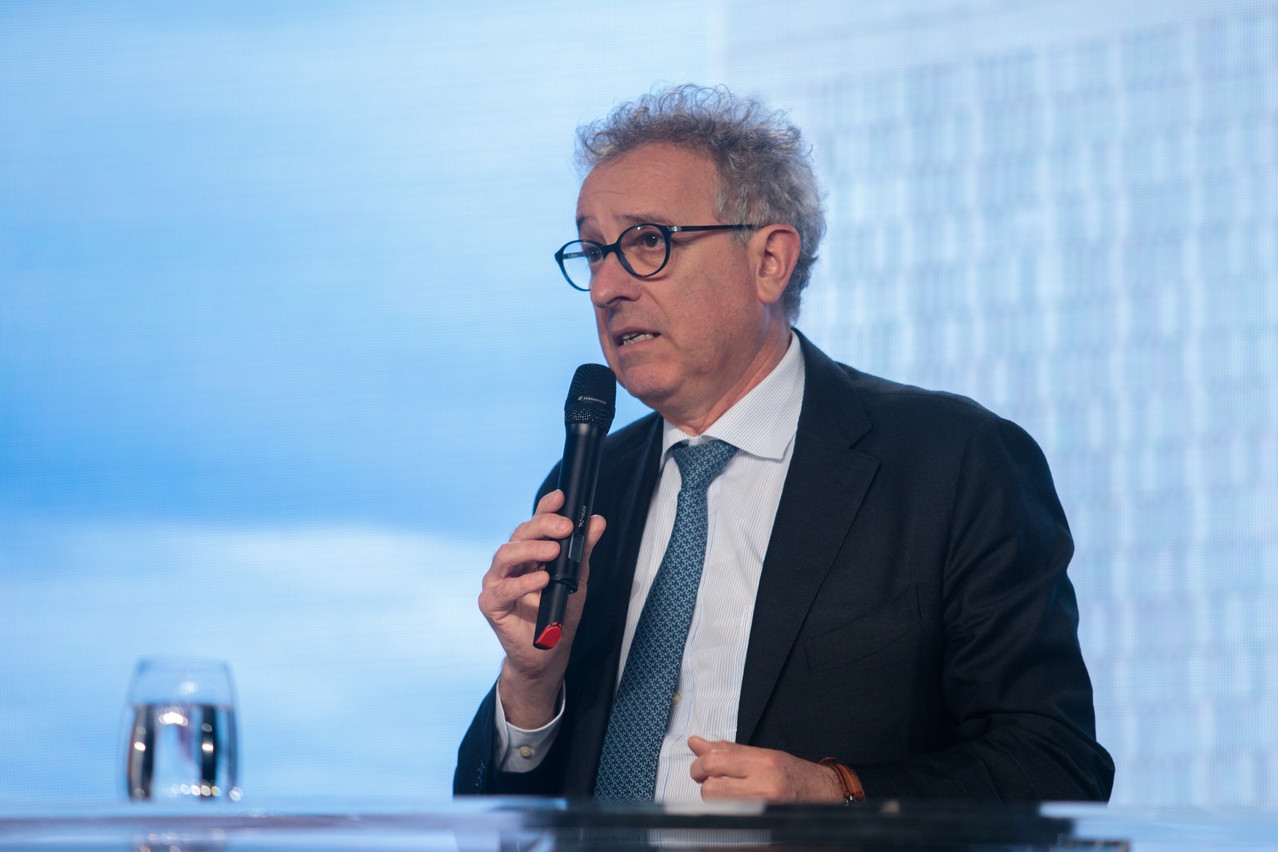A new president of the European Stability Mechanism will not be appointed this week. As the mandate of the current president ends on 7 October, the winner of the duel between , former Luxembourg finance minister (DP), and Portugal’s João Leão, its Socialist finance minister from 2020 to March 2022, will be decided at the next Eurogroup Council, on 3 October.
Read also
“The third area on the agenda for the Eurogroup today was our effort to appoint a new managing director of the European Stability Mechanism. To continue the exceptional job that was done by Klaus. Consultations with regard to this are continuing and I will be convening a Board of Governors meeting of the ESM shortly in order to progress that work. The work that has gone into it reflects the importance of this role,” Paschal Donohoe, president of the Eurogroup, after the 9 September meeting.
ESM’s image
The appointment is not made easy by the nomination process. The winner will have to gather 80% of the votes, it being understood that the ‘one country-one vote’ principle does not apply. Each country has a voting right in proportion to its weight in the capital of the ESM. Two countries have a mathematical veto right: Germany (27.1% of voting rights) and France (20.4% of voting rights). Italy comes next with 17.9% of the voting rights. Italy is hostile to Gramegna, whom it sees as a supporter of the German line of budgetary rigour, and is rallying the southern European states around it.
As soon as they are elected, the new president will have to get to the heart of the matter, i.e. reposition an institution created like the European IMF, which has a comfortable cushion of liquidity to lend... which nobody wants. This is because of the severe austerity programmes it has imposed on the countries that have previously benefited from its loans. Moreover, no one wanted to tap the credit lines made available at the start of the pandemic in 2020.
The stakes are high as a recession seems to be becoming inevitable and the social unrest that could ensue will benefit the Eurosceptics.
Originally published in French by and translated for Delano
